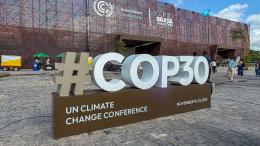Water is a medium through which the impacts of climate change are transferred to ecosystems, human societies, and economies. Increasing variability in the global water cycle manifests itself through increasing water extremes- irrespective of the geography and wealth of regions. Cities are also running out of drinking water, with Sao Paulo (Brazil), Chennai (India), and Cape Town (South Africa) most recently facing acute water shortages. It was recorded that almost 200 floods and 100 storms in 2019 alone affected nearly 65 million people worldwide.
Dealing with water- and climate-related challenges require new knowledge and innovations to help societies become more resilient. This, in turn, means knowing risks and having appropriate measures in place. The Project will contribute to the understanding of such risks and suggest risk- mitigation measures, putting the latter into the operational practice of UN Member States, and through this contributing to the overall water security – at national and global levels.
This Project builds on the previous UNU-INWEH project, “Managing Water Resources Variability and Risks for Increased Resilience” (Pelikan Code: 9909), which was implemented from 01 January 2018 to 31 July 2020. In the previous Project, the following activities were undertaken, and outputs were produced:
• A global state of the flood early warning systems was analyzed through a global online survey of operational national departments and literature review. The survey collected 53 responses from developing (47) and developed countries (6). A synthesis report titled: Flood Early Warning Systems: A Review of Benefits, Challenges, and Prospects was published as part of the UNU-INWEH`s corporate Report Series, and presentations were made at two international conferences held in Switzerland and Canada. Four (4) related publications were prepared (Book chapter: Challenges and Technical Advances in Flood Early Warning Systems FEWSs – Flood Impact Mitigation and Resilience Enhancement, IntechOpen, 2020, 1-18.1; Journal publication: Identifying Societal Challenges in Flood Early Warning Systems, International Journal of Disaster Risk Reduction-accepted; two international conference abstracts)
• Data collection and analysis on the state of ageing water storage infrastructure have been initiated, and first results presented at the International Conference; the in-depth work on this continues in the new Project
• First steps have been done in assessing the water-related threats to cities; This work will continue and may result in an “atlas” of water risks for major world cities.
• Working partnerships have been established with many new partners globally, including –WMO, ICHARM, IWMI, and Floodnet. (FloodNet is a multi-disciplinary research network initiated in 2011 connecting 12 Canadian universities and a large number of industrial, government and non-profit partners to improve flood risk protection in Canada)
• In collaboration with other projects of UNU-INWEH, the status of such risks of arsenic contamination of groundwater and threats to small island developing states have been conducted, and findings were published.
• Capacity building activities in science to policy transfer (i.e., flood management, disaster risk reduction), Seven (six female students and two from developing countries) were trained as in-house trainees.
• Overall, the Project produced 20 publications: Including Journal Articles (6); UNU-INWEH Reports (2); Policy briefs (2); Book chapter (1); Report Chapters (3) WWDR – 2020 “Water and Climate Change”; Conference proceedings (3), and Conference abstracts (3).
The new Project (August 2020 to December 2023) aims to build on the work in the previous stage to undertake a range of activities and outputs, but not limited to, the following:
A global study to (1) assess the present status of ageing water storage infrastructure (dams) and risks it posed; (2) identify the dam removal practices around the world and lessons learned; (3) develop a composite georeferenced global database on water storage dams which will be a primary source in future water storage analyses such as reservoir storage, power generation, dam sedimentation, dam failures, etc. This study is expected to result in UNU-INWEH reports/journal publications.
A quantitative assessment of water security of African countries through the development and application of a comprehensive set of complementary water-related indices. This “African Water Security Outlook” may be in the form of an online tool and/or report; this will be a prototype tool that will be marketed to African Water Ministries and international donors.
Quantitative assessment of climate- and water-related threats to major cities, with a view of the development of an “atlas” of the vulnerability of cities to such threats and risks – either at the global scale or at the scale of the Global South – developing world at large.
Development of a decision support tool that assists countries in categorizing flood early warning systems and evaluating their effectiveness in reducing flood risks and/or impacts.
This Project supports UNU-INWEH’s mission to help resolve pressing regional and global water challenges that are of concern to the United Nations, its Member States, and their people. In addition, the Project is associated with several action areas highlighted in Canada’s Feminist International Assistance Policy, notably ‘Environment and Climate Action’.
- Project Manager
- Duminda Perera


